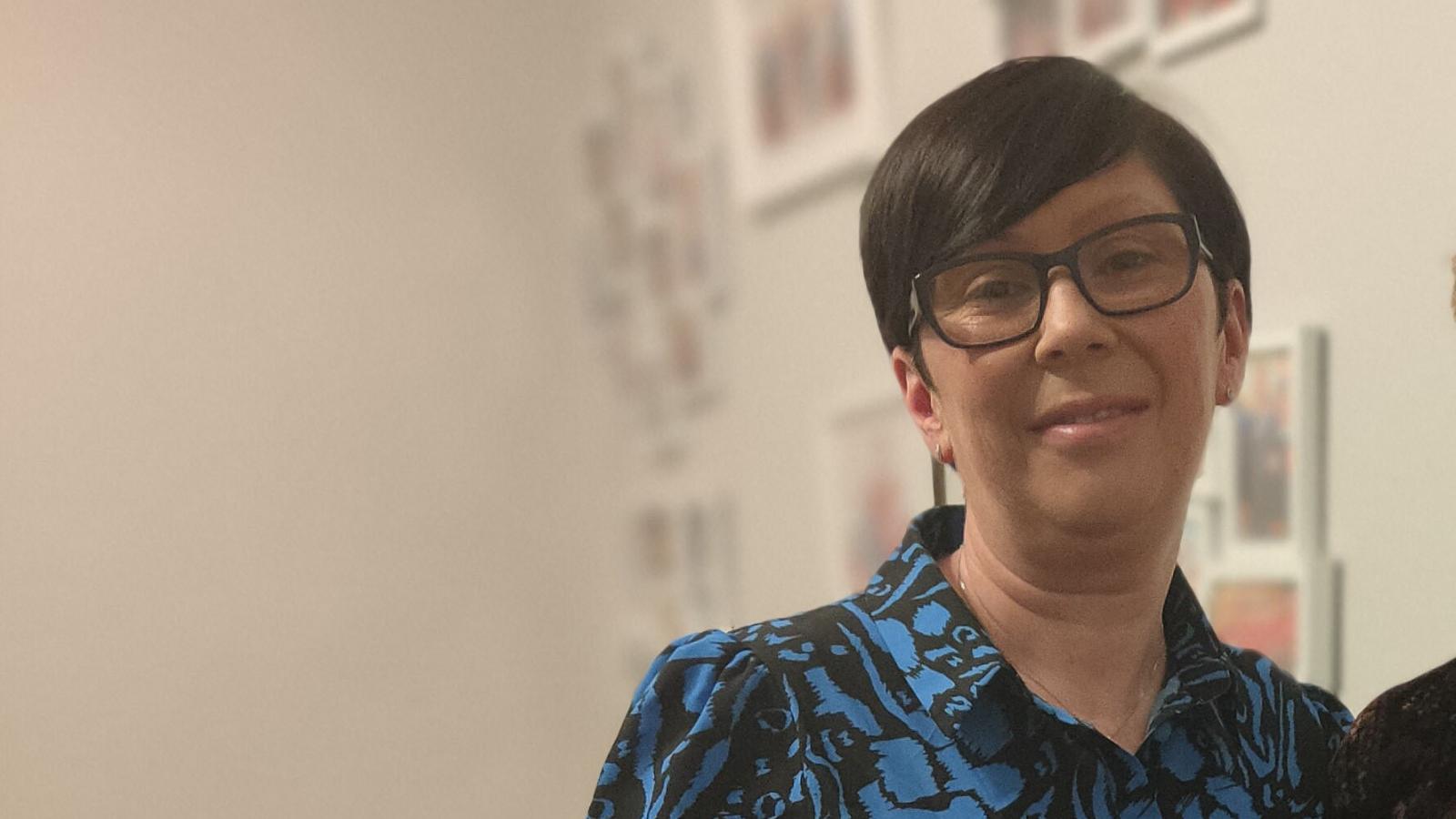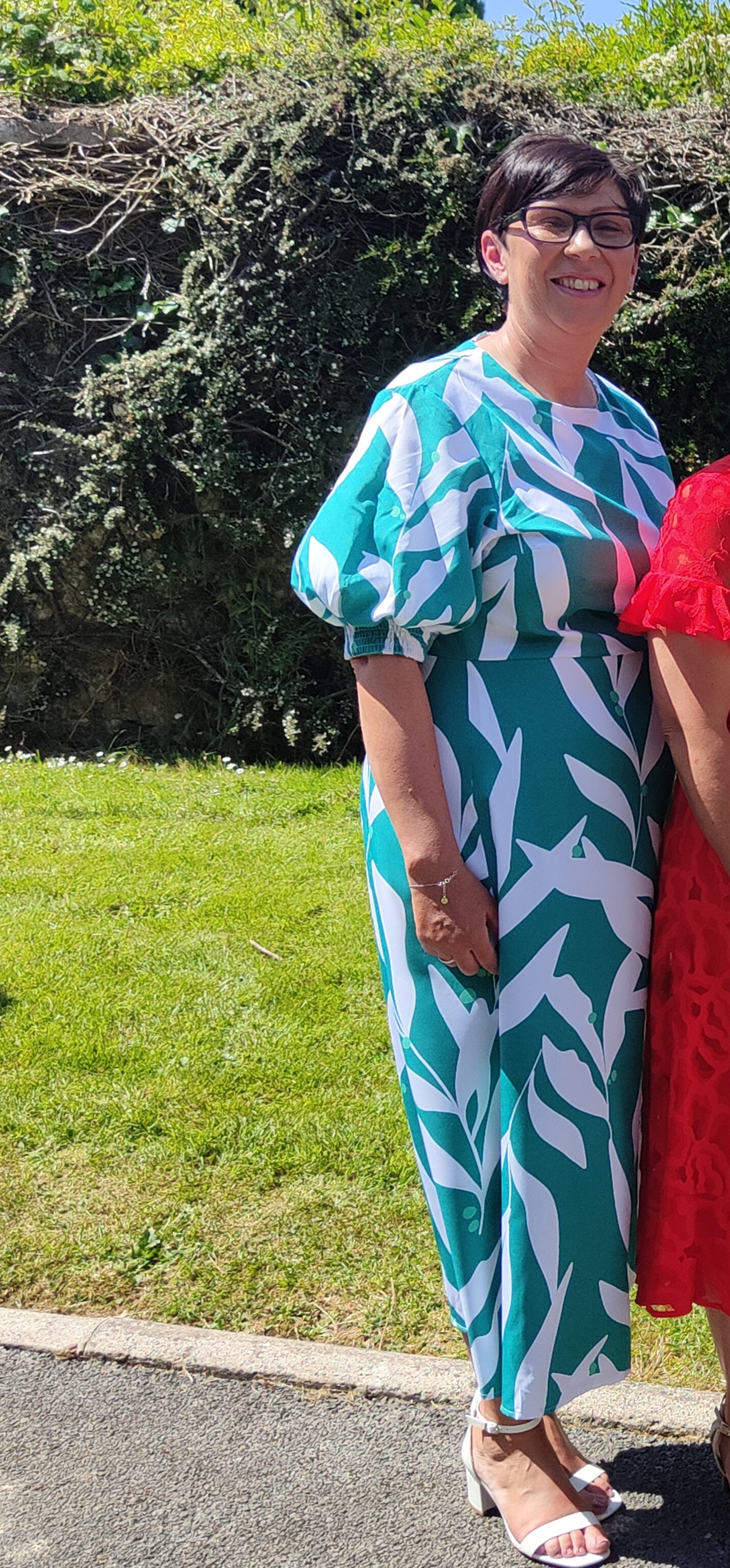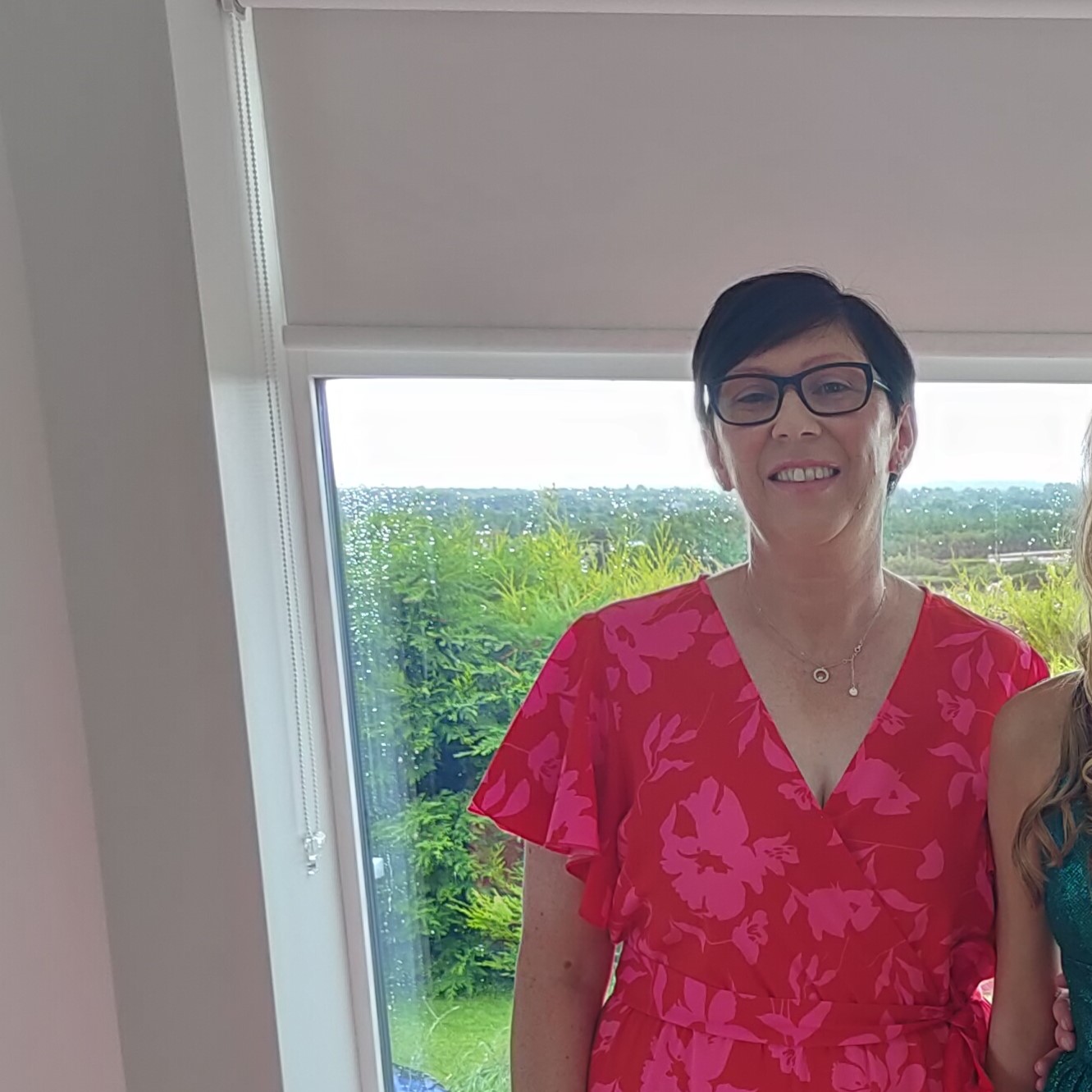Bridget's story
“Being involved in that research started me on a journey and since then, I’ve thrown myself into things because it is so important that the patient’s voice gets heard.”

“In hindsight, I had a lot of the classic symptoms that I now know, but at the time, wasn’t looking out for” says Bridget Carr, a 48-year-old mother of two who was eventually diagnosed with ovarian cancer in January 2019. “I had suffered with my stomach, with my digestion for some time. In 2017 I had my gall bladder removed. Over the course of 2018, things still weren’t right for me and in the end, I was all but down to a liquid diet because I was having such difficulty in getting food down.”
While suffering with these stomach problems, Bridget was engaging with her medical team throughout. “I was regularly attending the GP, I saw specialists, I had tests and scans on my stomach, and they couldn’t see anything. I remember one consultation where I was basically told, there is nothing to see here and maybe it’s all in your head. That for me was just so hard to take, because I was living with this and knew something was wrong with my body.”
“I began to develop these pains in my side and then my periods became very heavy. I was referred to a gynecologist and fortunately, I had private health care and so was able to see one within 4-5 weeks – for others, the wait can be much longer. After tests, he noticed a cyst on my ovaries and he put me back on the pill which was supposed to reduce the size of the cyst and stop the heavy periods. But the opposite happened.”
"At the time, our kids were 10 and 14. We got on with Christmas and seeing family and friends and kept the news to ourselves."

After this deterioration and the worsening symptoms, Bridget was put forward for surgery to remove the cyst. “They rang me and said they had the 21st of December free and they could usually never fill this slot as people wouldn’t want to be recovering over Christmas. I’d been suffering long enough with whatever was going on so I went ahead that date. I remember having to sign a form basically giving my permission that they would do whatever was necessary to perform the surgery safely and that could mean they would remove my ovaries. I woke up and had no idea the extent of what had been done and what they had discovered. My ovaries and fallopian tubes were removed and they told me they needed to do further tests, but by that point, they could see that I had ovarian cancer."
Following her surgery and following the news of her suspected diagnosis, Bridget got on with Christmas. “At the time, our kids were 10 and 14. We got on with Christmas and seeing family and friends and kept the news to ourselves. My mother and father had a big celebration coming up marking their anniversary and it was going to be a big family gathering, so I decided I’d hold back saying anything until after that took place. It was the 18th of January when my husband went with me and we got the news confirmed to us about my cancer. I just remember crying and I remember him crying and then, this sounds mad, but we finished crying and we went back to normal. My mother was minding the kids, we came home, chatted to her, got the homework finished and the dinner went on and life continued.”
After her parents’ celebration, Bridget broke the news. “It was really hard to withhold that information from your nearest and dearest, but it actually gave me and my husband the opportunity and space to get our own heads around it first. In many ways, we were much better prepared to tell the news and to answer people's questions as best we could. That bit of space really helped.”
Reflecting on her diagnosis, Bridget says “of course there’s anger there, but I’ve made peace with that now. Over the course of nearly a year, I knew something wasn’t right. That would be one criticism I have, I kept getting referred to specialists who looked only at my stomach, but nobody thought to pull back and look at the bigger picture and ask could something else be causing these issues? That’s what it was. The ovarian cancer was causing upward pressure. And now, I appreciate and understand the difficulties in detecting ovarian cancer, and how quickly it can spread and get worse, but at the same time, I do still feel that anger that I was getting worse while somebody asked me if it was in my head.”
Bridget began her chemotherapy in February 2019 and was just two rounds into her carbo-taxol chemotherapy when the plan changed. “I had a bad reaction and ended up in A&E. I broke out in this severe rash. The only thing that would relieve the irritation was icepacks. I was just one of those patients who suffered from some negative side effects, I’ve since met many ovarian cancer patients who have gone that route and they’ve had no reaction.”
As Bridget and her husband were discussing what their next move would be, after researching the best available treatments in Ireland, they came across a new treatment. “The Mater had this new treatment and it turned out, I was an eligible patient. The treatment involved quite extensive surgery - cytoreductive surgery - that would strip out all the tumous from your diaphragm right down to your pelvis area. And then, you get this heated chemotherapy treatment, where in non-technical terms, they pour in a hot chemo liquid into your abdomen area and swish it around and it’s supposed to get rid of whatever cancer was left after the surgery. Following surgery, I had two further rounds of that chemo treatment up until September 2019.”
"I found that peer support and just talking to other people going through what you’re going through so invaluable"

Since her diagnosis, Bridget has accessed and engaged with local support. “My first port of call was the Irish Cancer Society Daffodil Centre in University Hospital Limerick. It was there where I got chatting with one of their nurses who was so helpful and she gave me a leaflet for OvaCare. It was through them that I first met other women who had ovarian cancer and I found that peer support and just talking to other people going through what you’re going through so invaluable.”
It was through an OvaCare peer support meeting where Bridget first came into contact with Adele Connor, an Irish Cancer Society-funded PhD researcher in UCD. “I remember Adele coming onto our Zoom call and she was looking for people affected by ovarian cancer to get involved in a research project she was doing. I wouldn’t have put myself forward had it not been for Adele’s passion and enthusiasm. She just cared so much about having people with direct experience of cancer involved in her research and I was delighted to get involved.”
One aspect of Adele’s research, entitled Involving patients in healthcare research is well documented but can it work in lab-based research?, focused on patient involvement in lab-based research. Public and patient involvement (PPI) refers to involving the group under study in the decision making throughout the research project. “I was one of five people affected by ovarian cancer to get involved with Adele and since then, I feel like I’ve been bitten by the participation bug. Being involved in that research started me on a journey and since then, I’ve thrown myself into things because it is so important that the patient’s voice gets heard.”
